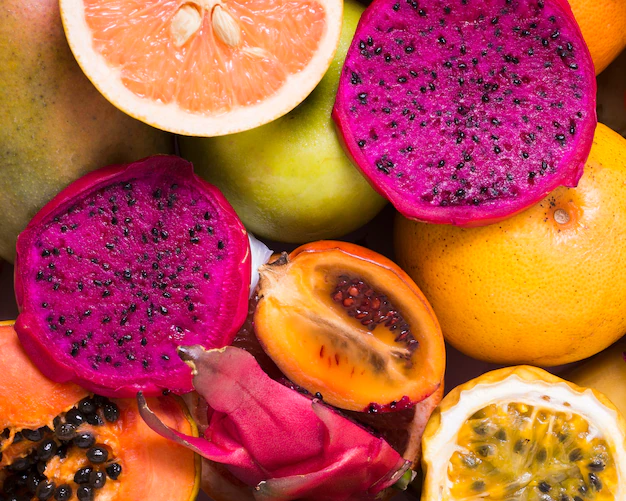Subtropical fruit farming is well-suited to the warm climates found in various regions of South Africa. With its favorable temperature, ample sunshine, and diverse topography, South Africa offers ideal conditions for the cultivation of a wide range of subtropical fruits. Let’s explore some of the popular subtropical fruits grown in South Africa and the benefits of embracing this type of farming in the country.
- Mangoes: Mango farming is a significant industry in South Africa. The country’s warm temperatures and abundant sunlight provide excellent conditions for mango cultivation. South African mangoes are known for their exceptional flavor, sweetness, and high-quality export standards. The main mango-growing regions include Limpopo, Mpumalanga, and KwaZulu-Natal.
- Avocados: Avocado farming has gained tremendous popularity in South Africa due to the country’s favorable climate. The subtropical regions, such as Limpopo, Mpumalanga, and KwaZulu-Natal, offer suitable conditions for growing avocados. South African avocados are known for their rich taste, creamy texture, and high oil content, making them highly sought after both domestically and internationally.
- Citrus fruits: South Africa is one of the largest citrus fruit exporters globally. The country produces a wide range of citrus fruits, including oranges, lemons, grapefruits, and naartjies (clementines). The subtropical regions, particularly the Eastern Cape, Mpumalanga, and Limpopo, have optimal climatic conditions for citrus cultivation. South African citrus fruits are renowned for their excellent quality, flavor, and juiciness.
- Bananas: Banana farming thrives in South Africa’s subtropical coastal regions, such as KwaZulu-Natal and parts of the Eastern Cape. The warm and humid conditions near the coast create a suitable environment for growing bananas. South African bananas are known for their exceptional taste, texture, and consistent supply throughout the year.
- Pawpaws (papayas): Pawpaw farming is well-established in South Africa, primarily in the coastal and subtropical regions. The warm temperatures and adequate rainfall in these areas promote optimal pawpaw growth. South African pawpaws are known for their sweet flavor, vibrant color, and high nutritional value.
By embracing subtropical fruit farming in South Africa, farmers can benefit from several advantages:
- Favorable climate: South Africa’s warm temperatures, mild winters, and abundant sunshine provide an excellent climate for subtropical fruit cultivation. This allows farmers to grow a wide range of fruits and achieve high-quality yields.
- Export potential: Subtropical fruits from South Africa have a strong demand in international markets. The country’s favorable climatic conditions allow for consistent production and high-quality fruit, enabling farmers to tap into lucrative export opportunities.
- Economic growth: Subtropical fruit farming contributes significantly to South Africa’s agricultural sector and overall economic growth. The industry creates employment opportunities, boosts rural development, and generates foreign exchange through exports.
- Diversification: Subtropical fruit farming offers farmers the opportunity to diversify their agricultural activities and income streams. Growing a variety of fruits can help spread risks and provide stability, as different fruits have varying market demands and seasonal cycles.
- Sustainability: Subtropical fruit farming in South Africa can be practiced using sustainable agricultural techniques. By implementing responsible water management, soil conservation practices, and integrated pest management strategies, farmers can ensure the long-term viability of their operations.
In conclusion, South Africa’s warm climates are conducive to subtropical fruit farming, which presents numerous opportunities for farmers. With its diverse range of fruits, favorable conditions, and potential for both domestic and international markets, subtropical fruit farming contributes to the country’s agricultural growth and economic development.
Join 'Farmers Mag' WhatsApp Channel
Get the latest Farming news and tips delivered straight to your WhatsApp
CLICK HERE TO JOIN






